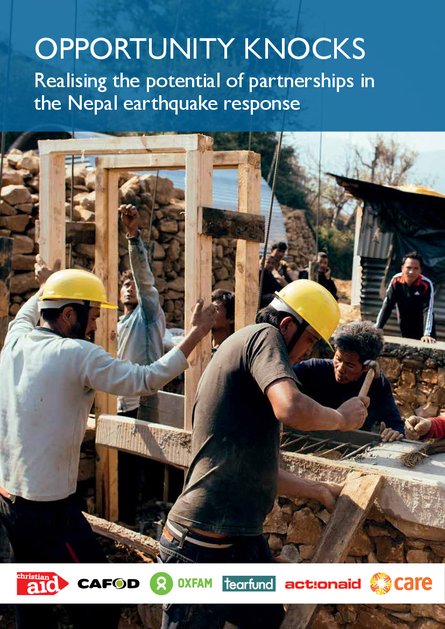
Humanitarian response is all too often characterised by large international responses; in contrast, the approach of the Government of Nepal that required all international NGOs to work through national and district-based partners for all but the initial phase of the earthquake response offered a real-time opportunity for the humanitarian community to put principles of partnership into practice.
This study draws on discussions with civil society, NGOs, UN agencies and government staff in Kathmandu and the districts of Gorkha and Sindhupalchok to harvest lessons from the experience to inform and strengthen future preparedness and response in Nepal, and to strengthen global advocacy on the need for further investment in, and support for, local and national leadership of humanitarian response.